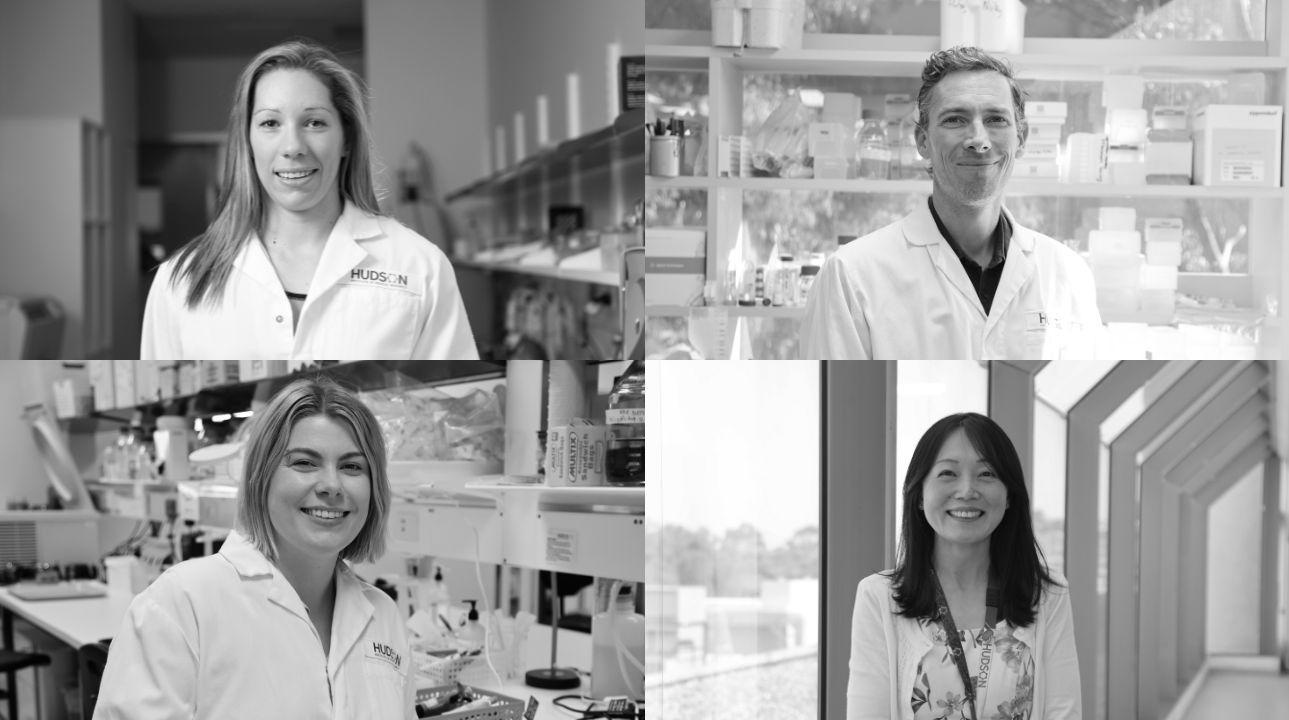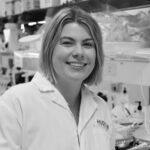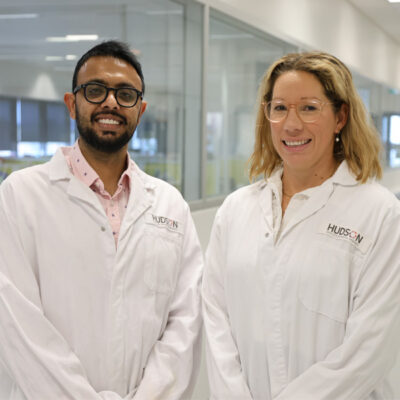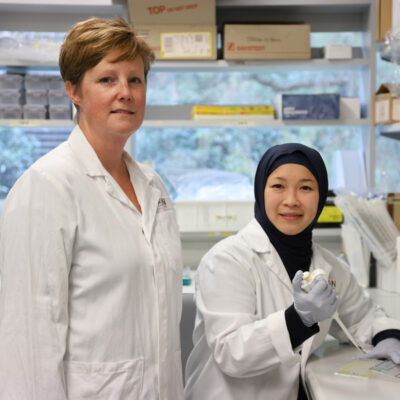NHMRC Investigator grant success 2025
By Rob Clancy, staff writer

Research projects that will improve the lives of people with autoinflammatory diseases, hypertension, cancer and perinatal brain injury have been recognised in the latest National Health and Medical Research Council (NHMRC) Investigator Grants, announced by Federal Minister for Health and Ageing, The Hon Mark Butler MP.
The Investigator Grant scheme is the NHMRC’s largest funding scheme and is a major investment in Australia’s health and medical research workforce, this year providing $422 million to 229 researchers to investigate our greatest health challenges.
It provides Australia’s highest-performing researchers, across the spectrum of health research and at all career stages, with consolidated funding for their salary, if required, and a significant research support package for five years.
Investigator grants
Among Hudson Institute’s recipients this year is Professor Seth Masters, who receives more than $2.9 million to advance his research into the identification, validation and therapy of autoinflammatory diseases.
Prof Masters said this Investigator grant would facilitate studies that diagnose patients with auto inflammatory disease, and associated targeted therapies. “Without these funds, we would have fewer targets against which to design new classes of drug that prevent activation of the innate immune system against a wide range of pathology relating to arthritis, inflammatory bowel disease, inflammatory skin diseases, and even neurodegenerative conditions,” he said.
Dr Nicole Campbell’s research on the development of a novel cancer immunotherapy received $688,000 which she says will allow her to expand her research on the unique cytokine, interferon epsilon (IFNe), and how it regulates the anti-tumour immune response to limit cancer metastasis.
“Building on my extensive work in ovarian cancer, I am working to identify which patients will most benefit from IFNe therapy. Furthermore, this funding will enable me to study the potential of IFNe to treat cancers other than ovarian for the first time,” Dr Campbell said.
Dr Courtney McDonald’s research into cell therapies for the injured perinatal brain was recognised with $1.6 million, as she seeks to maximise the healing effects of cord blood stem cells.
“My team is developing a novel method to increase the number of cells that we can use and testing them in preclinical models or preterm brain injury to show they can protect the preterm brain and could be an improved alternative cord blood treatment,” she said.
Associate Professor Jun Yang was also recognised, with assessors awarding $1.6 million for her project advancing the diagnosis and management of primary aldosteronism, a common but neglected cause of hypertension, which is run by Hudson Institute in conjunction with Monash Health and Monash University.
“I am deeply grateful for the Investigator Grant, which will empower my team and me to drive critical advancements in diagnosing and treating primary aldosteronism—one of the most overlooked yet potentially curable causes of hypertension,” A/Prof Yang said.
“This support is a vital step towards reducing the immense burden of preventable cardiovascular and renal disease for hundreds of thousands of Australians with high blood pressure caused by this disease.”
Collaborators | Monash Health, Monash University
This research was supported by | National Health and Medical Research Council (NHMRC)
- Women’s and Newborn health
- Inflammation
- Cancer
- Inflammatory bowel disease (IBD)
- Cerebral Palsy
- Endocrine hypertension
- Ovarian cancer
In this article
About Hudson Institute
Hudson Institute’ s research programs deliver in three areas of medical need – inflammation, cancer, women’s and newborn health. More
Hudson News
Get the inside view on discoveries and patient stories
“Thank you Hudson Institute researchers. Your work brings such hope to all women with ovarian cancer knowing that potentially women in the future won't have to go through what we have!”











